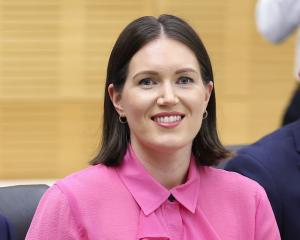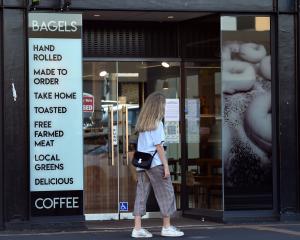
Ms Ramsay believes the city’s growing reputation as a start-up mecca will come under threat unless it also sets up clear paths to funding.
She said there was only so much that ‘‘friends, families and fools’’ could be relied on to ensure businesses got to a scaleable stage.
‘‘Bootstrapping is an important element for a lot of start-ups, but beyond that there will often be a need to look to private equity and venture capital.’’
She said young businesses also needed to understand aspects like due diligence or the expectations of investors.
For angel investors, or those who invested on a philanthropic basis, it wasn’t just about cutting a cheque, she said.
‘‘Often, the biggest benefit is finding a mentor or a friend, someone our founders can lean on and who can add value to the business.’’
Start-up was working with local and outside investors to create a new angel fund, which while based in Dunedin, would be focused on opportunities across the region.
‘‘Our strategy has always been to take a hard look at the lack of early-stage capital.
‘‘We have ... looked at the key funders, whether angel or venture capital, with the aim of creating a separate investment group.’’
She said a motivator had been seeing the difficulty entrepreneurs had in securing funding.
‘‘There is no clear framework. It also pains me to see people jumping through hoops, speaking to 20 different potential investors with little to show for it after a year.
‘‘Our aim is to cut out replication and make the process more effective and certainly more enjoyable,’’ she said.
Fund Managers Otago chairman and Grow Dunedin Partnership director John Gallaher said the city offered all the right ingredients to be a home for the high-growth tech sector.
‘‘We are adopting a different attitude towards innovation, about being a smart city and using resources we have at our disposal.
‘‘I think that there is significant potential for angel and venture capital investment to re-emerge here and that will act as a catalyst to growing the start-ups we already have in place.’’
He said the inputs from incubators such as Innov8 and Petridish, as well as from within the University Business School, served as an important part of that, but capital had to come from formal investment structures.
‘‘Once you have a big pool of interesting ideas and concepts that you are developing, it becomes easier to attract international or wider funding, but you have to have that to start attracting initial seed capital in the first place.’’
New Zealand Venture Investment Fund (NZVIF) chief executive Richard Dellabarca acknowledged that those formal structures had not always been directed southwards.
Since the inception of the fund’s venture capital and seed co-investment programmes, the NZVIF had invested a total of $200million in 298 companies, of which $4.2million had gone to 14 Dunedin companies.
These had included Bison Group, Codelingo, Techion Holdings, TracPlus and Menixis.
‘‘We don’t adopt a comprehensive view of the market, however, so we have not taken a position in a Dunedin gaming company, for example, as they may have had other international funding sources.’’
Mr Dellabarca said the launch of the new government $300million venture capital fund next month, would be a real stimulus for start-ups.
‘‘We are here to help New Zealand companies get capital to grow. We are open minded to opportunities, but we do not look at lifestyle or domestic investments, as our preference is into companies which have global opportunities.’’
‘‘Members of our team have been down in Otago and Southland and we are also working with Queenstown agencies where opportunity arises.’’













